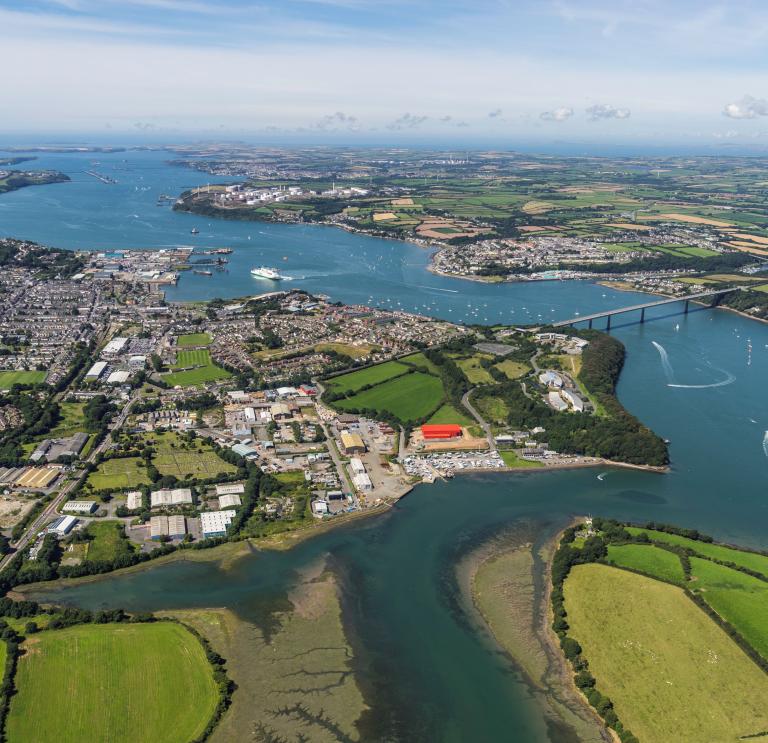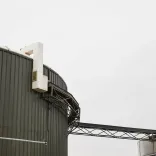Wales and Japan share a commitment to sustainability and carbon reduction, with both nations setting ambitious renewable energy goals as part of their broader climate strategies. A key area of that synergy could lie in offshore wind energy and the potential to deliver large-scale, clean electricity, reshaping the global energy landscape.
The UK is a global leader in offshore wind development, and Wales plays a crucial role in achieving the UK Government’s commitment to generating 50GW from offshore wind by 2030 and reaching net zero by 2050.
Japan, renowned for its technological innovation, is shifting from fossil fuels to renewables, while Wales, rich in natural resources, is rapidly positioning itself as a leading hub for offshore wind in the UK. With Japanese companies such as Panasonic, Sony and Toyota having already a legacy of successful investments in Wales, the potential for further collaboration, particularly in offshore wind energy, has never been greater.
For Japanese companies, integrating into Welsh offshore wind supply chains presents substantial opportunities for investment, technology exchange, and long-term collaboration.
The green opportunities that exist off Welsh shores
Importantly, the latest offshore wind leasing phase launched by the Crown Estate (which manages much of the coastline around Wales, England and Northern Ireland) aims to establish a new generation of floating wind farms in the Celtic Sea, offering significant opportunities for collaborative innovation.
The Celtic Sea sites off the coast of South Wales have the potential to accommodate up to 20GW of floating offshore wind capacity by 2045. In the near term, the Crown Estate has committed to leasing seabed for up to 4.5GW by 2035, providing renewable energy for over four million homes. The first three 1.5GW projects will be awarded seabed leases in early 2025, with further plans to unlock an additional 12GW of capacity in the Celtic Sea.
Japanese companies across a range of expertise in offshore wind technology, marine engineering and infrastructure development, can all contribute to Wales' growing offshore renewables sector. This includes involvement in manufacturing, installation, anchor and mooring systems, transmission cables, grid infrastructure, and maintenance services, which are critical elements in developing a robust and efficient supply chain.
The destinations for Japanese-Welsh collaboration
Freeports play a pivotal role in attracting investment and fostering innovation. Wales has established two Freeports, Anglesey Freeport and Celtic Freeport, to support the expansion of offshore wind energy.
The Celtic Freeport, covering Milford Haven and Port Talbot in the west of Wales, is set to drive new manufacturing facilities, port infrastructure enhancements, operations and maintenance, and the expansion of floating offshore wind (FLOW) in the Celtic Sea. This initiative offers Japanese companies a strategic gateway to invest in renewable energy projects, benefit from tax incentives, and establish key manufacturing and logistics operations in Wales.
With additional opportunities in hydrogen economy development, carbon capture and storage, sustainable fuels, and low-carbon logistics, Japanese firms can establish a strong presence in Wales’ evolving green energy ecosystem.
Wind’s sustained successes in Wales
Wales has already demonstrated its capabilities in offshore wind energy with existing operational and planned projects. The accomplishments of these initiatives provide a solid foundation for future collaborations and innovation:
- North Hoyle Offshore Wind Farm – UK's first commercial offshore wind project, with 30 turbines generating 60MW, powering 40,000 homes.
- Gwynt y Môr – A 576MW wind farm with 160 turbines off North Wales, powering 467,000 households and reducing CO2 emissions by 1.7m tonnes annually.
- Trydan Gwyrdd Cymru – A Welsh Government-owned onshore wind initiative set to deliver 250MW by 2030.
Beyond these, several further large-scale offshore projects are in progress:
- Awel y Môr – Approved for up to 50 turbines off North Wales.
- Mona Offshore Wind Project – A proposed development in the east Irish Sea with up to 96 wind turbines and a comprehensive transmission network.
- Morgan Offshore Wind Project – A similar development with up to 96 turbines and associated offshore infrastructure.
- Morecambe Offshore Windfarm – A 480MW project capable of powering over 500,000 homes.
These projects, along with the upcoming Celtic Sea developments, reinforce the significant opportunities for Japanese businesses to contribute to Wales' offshore wind sector, from design and engineering to construction, operations, and maintenance.
Renewing our collaborative achievements
The potential for deeper collaboration between Japan and Wales is already being realised through key partnerships. A notable example is Japan Marine United Corporation (JMU), which is partnering with AMRC Cymru, a South Wales-based manufacturing research centre, to advance floating offshore wind (FLOW) technology in Wales and the UK.
JMU, which has experience from Japan's Fukushima Floating Offshore Wind Farm and the Green Innovation Fund, is leveraging its expertise to enhance Welsh supply chains, create green jobs, and contribute to the UK’s renewable energy goals. This partnership highlights how Japanese companies can bring their technical expertise to Wales, fostering innovation and sustainable energy development.
Additionally, in 2022, a delegation from the Japanese Wind Power Association visited North Wales to explore opportunities and gain insights into the region’s offshore wind sector. Welsh companies have also played a role in Japan’s offshore wind development, showcasing the mutual benefits of collaboration between the two nations.
Uniting nations for a prosperous greener future
Wales and Japan have built strong economic ties over the 50 years, but the evolving opportunities in the Celtic Sea mark a new chapter in their partnership. As Wales accelerates its offshore wind development to achieve net zero targets, collaboration with Japan offers a unique opportunity for shared innovation and partnerships that see Japanese companies become integral parts of growing, green, Welsh supply chains.
Through investment in manufacturing, marine engineering, new technology, and port infrastructure, Japanese firms can help shape the future of offshore wind energy in Wales. This collaboration not only advances the clean energy transition but also strengthens economic ties, fosters innovation, and paves the way for a more sustainable world.




